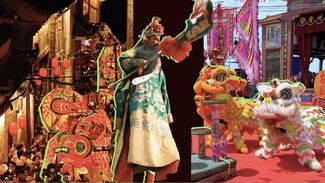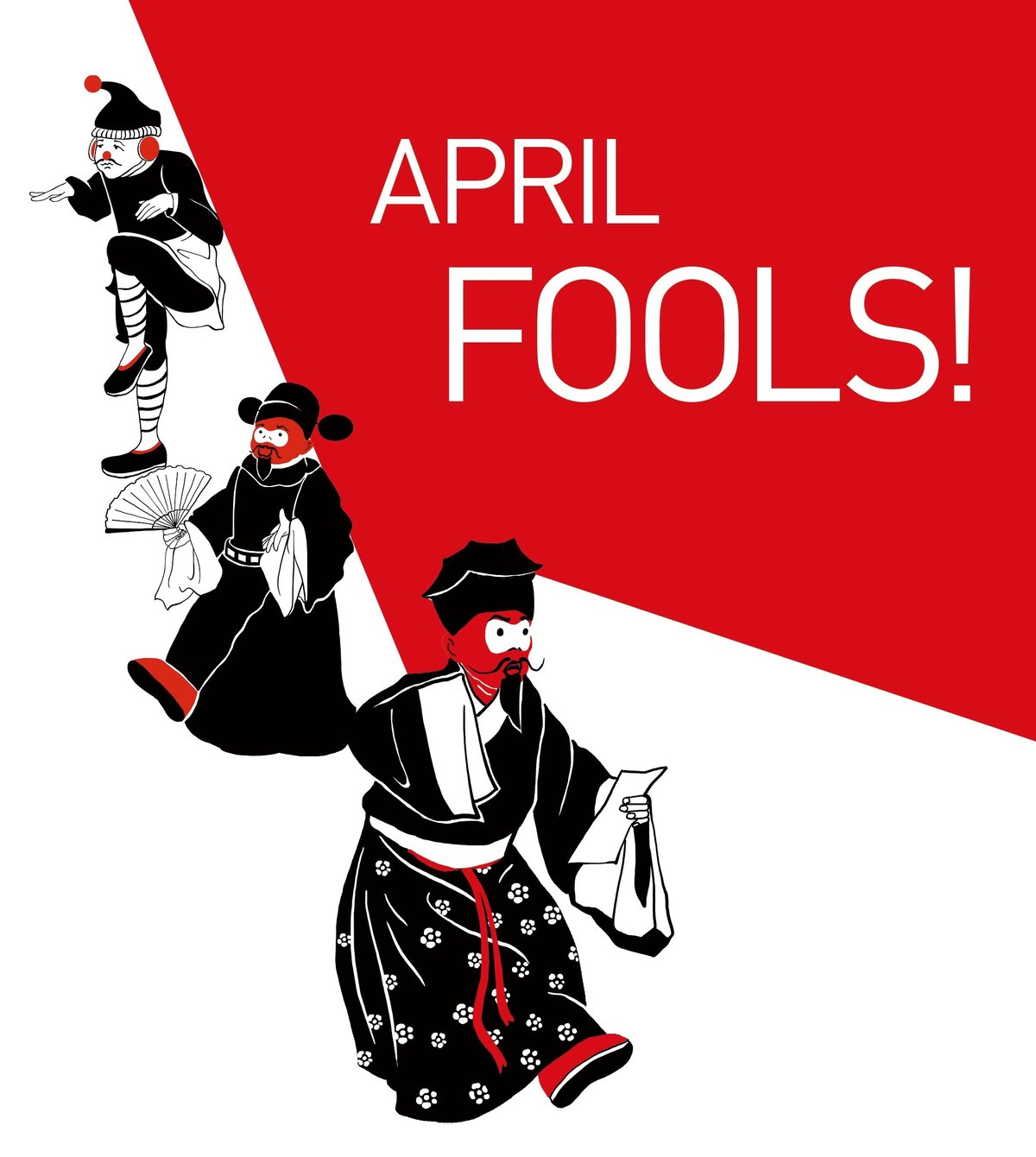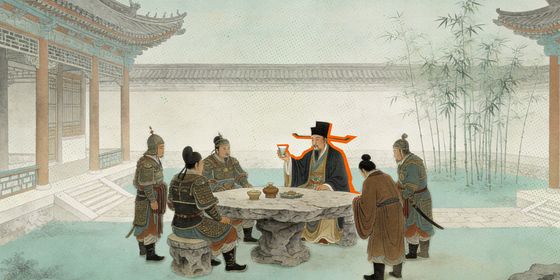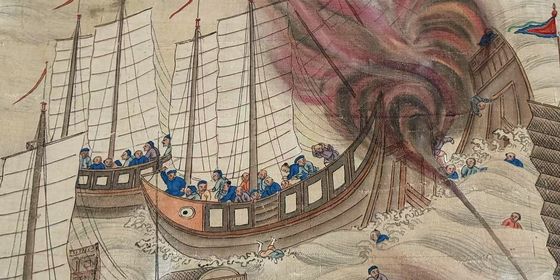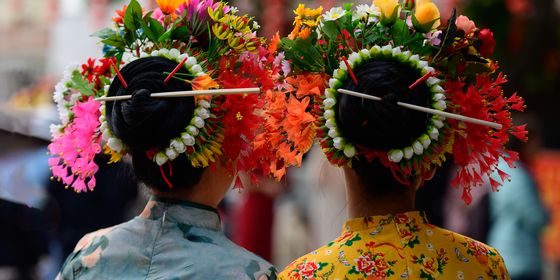China may not have invented April Fools’ Day, but Chinese history is littered with practical jokes
As far as anyone has been able to prove, ancient China had no equivalent to April Fools’ Day, and even the word for humor, 幽默 (yōumò), is believed to have been transliterated from English by writer Lin Yutang (林语堂), who first used the term in an article in Chen Bao newspaper in 1924.
But whether or not there was a word for them, Chinese history was still full of practical jokers, fraudsters, and comedians. We looked through the annals, and here are three of the best historical pranks we found:
Qian Zhongshu pranks his pretentious family with French “sugar”
The famed writer Qian Zhongshu (钱钟书) had no time for the pretentiousness of Shanghai’s cosmopolitan population, satirizing their use of foreign culture to boost their status in his much-loved novel Fortress Besieged of 1947. But this annoyance came from personal experience.
After a long period spent studying in the UK and France, Qian returned to China in 1936, first visiting his family home in Wuxi (just to the north of Shanghai). He was sickened by how pompous his third uncle, now running the household in the absence of his father and second uncle, had become. His uncle would often show off his cosmopolitanism with long monologues at the dinner table, while his guests would “smatter their sentences with French and English expletives, when one of our Shanghainese ones would do just as well,” Qian wrote to a friend in September 1936.
“He’s heard about a British apple called a ‘Pink Lady,’ and assumes its color and shape match the description,” Qian continued in the letter, which was later published in the anthology Limited Knowledge: Essays of Ideas and Letters in 1989. “Last weekend he described in detail the apples, sent to him, he simpered, by a British business connection, and how an 18th century gardener had perfected the Pink Lady’s shape, modeled on the voluptuous curves of his master’s wife.”
The uncle’s colorful lies, and the guests’ sycophantic nods, infuriated Qian. To teach them all a lesson, Qian bought a tin of purple powdered pigment, and placed it in a jar with a French label (advertising laundry detergent). He told his family that it was a gift sent by a friend just returned from abroad, and that it was the latest a la mode cooking ingredient in Paris, a type of sugar made from candied violets. The family waited until their next dinner party before they used it, instructing the servants to make croissants with them, served a brilliant shade of mauve. “Third uncle prodded the pastry,” Qian recorded in his diary, “and trilled to them [the guests] about the history of croissants, colored purple since the 1870s to honor the fall of the Paris Commune.”
Qian went on to record with glee how both uncle and guests smilingly sweated through the acidic, bitter taste of the acrylic-infused pastry. The uncle would regularly bring up the delicious taste of the pastries to future guests afterward, telling them sadly that if only he had made their acquaintance at that time, they would have been entitled to a share. The jar of “sugar” in fact stayed untouched in the family pantry, until the family fled the oncoming Japanese invasion in 1937. Looking back at the situation, in an essay in Limited Knowledge, Qian liked to imagine a Japanese colonel finding the jar, and falling for the same trick.
Li Qingzhao gets burned by a jealous official
The Song dynasty (960 – 1279) had many female poets, but we will never know exactly how many: In Voices of the Song Lyric in China, former Yale University professor Kang-i Sun Chang wrote that educated women in the Song dynasty would burn their work for fear of “exposing their poetic talents to the outside world.”
But Li Qingzhao (李清照), a poetic legend of the time, proudly read hers in public. They were bold lines, often provocative: at the age of just 17 she was snubbing the established belief of the master poets of the time, that the previous Tang dynasty (618 – 907) were infallible—her verses implied the dynasty fell due to weak and corrupt leadership.
But one courtier apparently took personal offense to Li’s barbs, and set about gaining revenge. Li recorded in her remarkably detailed afterword to her husband’s treatise Records on Metal and Stone, how the man, referred to only as Zhao, tried to humiliate her: It was nearly 大寒 (dàhán, “big cold”), the 24th and final solar term of the year, and Zhao declared that “A ci [poetic lines sung to music, popular at parties and one of Li’s specialties] would warm the court.” He told Li he wanted to collect up her work and use it to entertain officials when the coldest part of the year arrived.
Flattered, and expecting Zhao to read out her life’s work, Li handed over a selection of manuscripts. But on the evening of “big cold,” at a banquet of local officials, Zhao stood before the assembled courtiers, praised Li to the skies, and then set her manuscripts alight. “He honored my obedience,” fumed Li in Records on Metal and Stone. “That for the new year, I had chosen a path of heavenly harmony.” To the banging of gongs and whirring of string instruments, he gently laid Li’s manuscripts on a bronze bier, and set them alight.
Historian Gavin Johnson of Warwick University suggested in a 2018 article for the Journal of Chinese Literature that “in an age before MeToo, [Zhao] formulated a joke designed to shame, putting Li back in her ‘place.’”
“But perhaps we should thank Zhao: without his very public put-down, Li may never have driven herself to compose as many ci as she later did,” wrote Johnson.
The Yuan dynasty butcher who infiltrated an army
Usually, the legal records of Khanbaliq (modern-day Beijing) during the Yuan dynasty are predictably dry and dusty. They would probably have been overlooked by popular history, had it not been for a laconically phrased moment of comedy, circa 1308, in the reign of Emperor Wuzong, Kublah Khan’s great-great-grandson. Among sinologists, it is politely referred to as the “T15-H” case, after the document file it was found under by archivists at Cambridge University in 1932:
“Yu Lingjun, butcher, sentenced to death for infiltrating the prostitute army, disguised as a serving girl. Defendant’s defense that he enjoyed dressing as a woman and entered the wrong building—invalid.”
In the Travels of Marco Polo, the early 14th century Venetian explorer had described with wonder the army of prostitutes—led by a “captain”, with deputies in charge of “every hundred and thousand”—from whose ranks one member per night would be assigned to warm the beds of the foreign dignitaries visiting the imperial court. “It is perhaps possible,” wrote Joseph Needham in The Grand Migration, “that the small tradesmen of the great city looked with envy at the army, usually hand-picked from across the empire for their beauty. The T15-H case proves that at least one had the pluck to break in, but perhaps not the learning to explain himself.”
Scroll down for more information.
*****
Happy April Fools’ Day! We got you again. This piece was a brew of fact and fiction. Here’s the truth: The Republican novelist Qian Zhongshu mocked the obsession for foreign fashions among cosmopolitan Chinese in his novel Fortress Besieged. Li Qingzhao did serve up poems dissing the beliefs of her elders and recorded her life in amazing detail in Records on Metal and Stone, while there was a tradition of women burning their poems during the Ming as per the (genuine) quote from Voices of the Song Lyric in China, it is unclear how prevalent this was in the Song dynasty. Marco Polo did describe an army of prostitutes in Beijing serving visiting dignitaries (albeit not closely guarded, and who served the needs of anyone who could pay). And the word for ”humor” does seem to have been introduced by Lin Yutang in 1924. The rest of the details are entirely made up.

